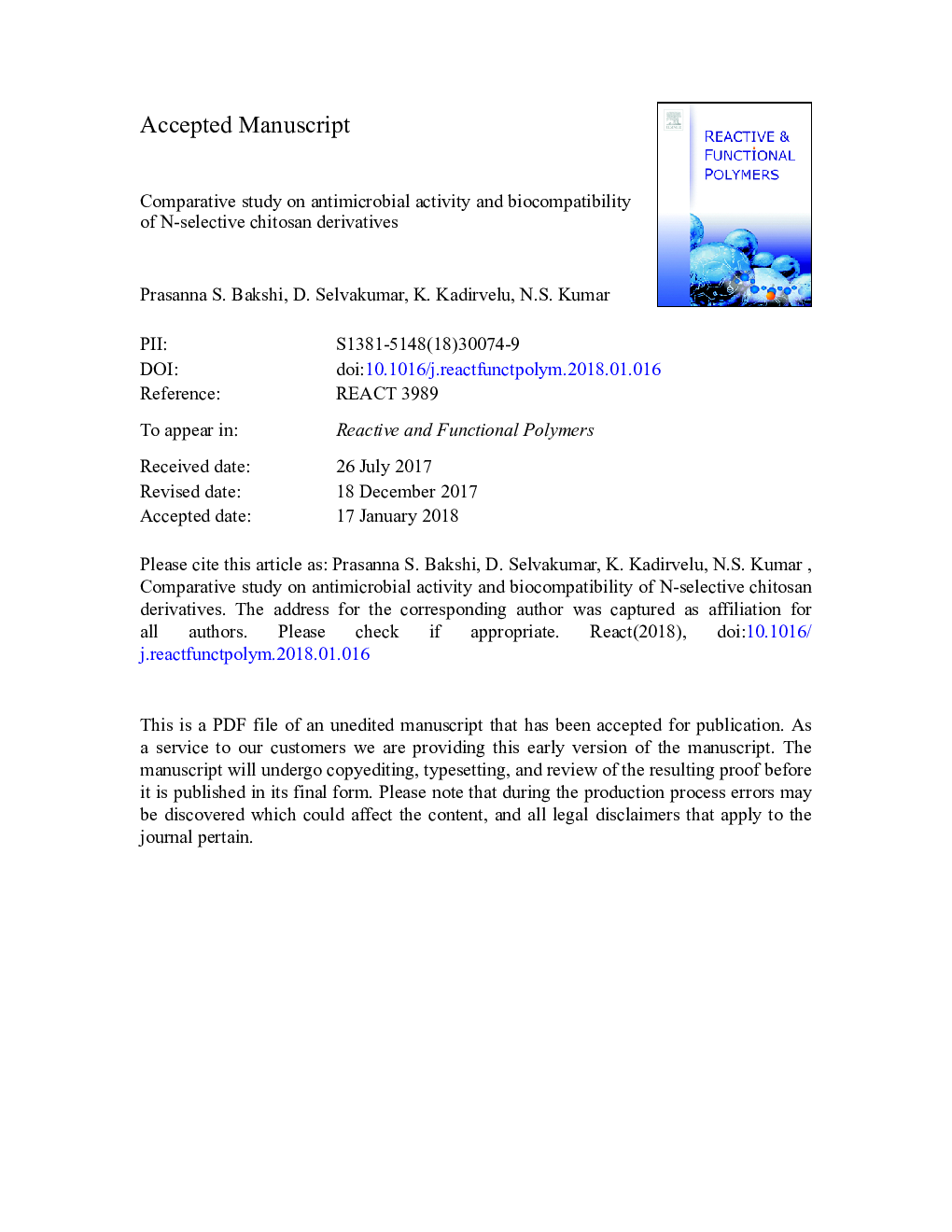| Article ID | Journal | Published Year | Pages | File Type |
|---|---|---|---|---|
| 7826401 | Reactive and Functional Polymers | 2018 | 27 Pages |
Abstract
N-selective derivatives of chitosan (CH) namely, N-methyl chitosan (NMC), trimethyl chitosan (TMC), diethyl methyl chitosan (DEMC) and carboxymethyl chitosan (CMC) were synthesized to study the effects of alkylation on antimicrobial property and biocompatibility. The derivatives were characterized by FT-IR confirming O-free alkyl substitution. XRD studies showed reduction in crystallinity and zeta potential measurement proved the increase in positive charges upon alkylation. Antimicrobial activity was observed to be in the order of DEMC < CMC < CH < NMC < TMC. MTT assay revealed that the modified chitosans were non-cytotoxic to primary normal human epidermal keratinocytes. Chitosan derivatives were tested using EpiDerm⢠Skin Irritation Test as per OECD TG 439 and were categorized as non-irritants. Zebrafish embryo viability test was used to study the toxicity of the modified chitosans and LC50 for the samples in zebrafish embryo ranged from 20 to 50 μg/mL. Results showed that amongst the alkyl derivatives, O-methyl free N,N,N-trimethyl chitosan (TMC) is the potential candidate material with enhanced antimicrobial property and biocompatibility. Herein, we report the first results of using chitosan or its derivatives in the EpiDerm in vitro skin irritation test. The four derivatives of chitosan are compared on a single platform for their physicochemical, biological and biocompatible properties.
Related Topics
Physical Sciences and Engineering
Chemistry
Organic Chemistry
Authors
Prasanna S. Bakshi, D. Selvakumar, K. Kadirvelu, N.S. Kumar,
